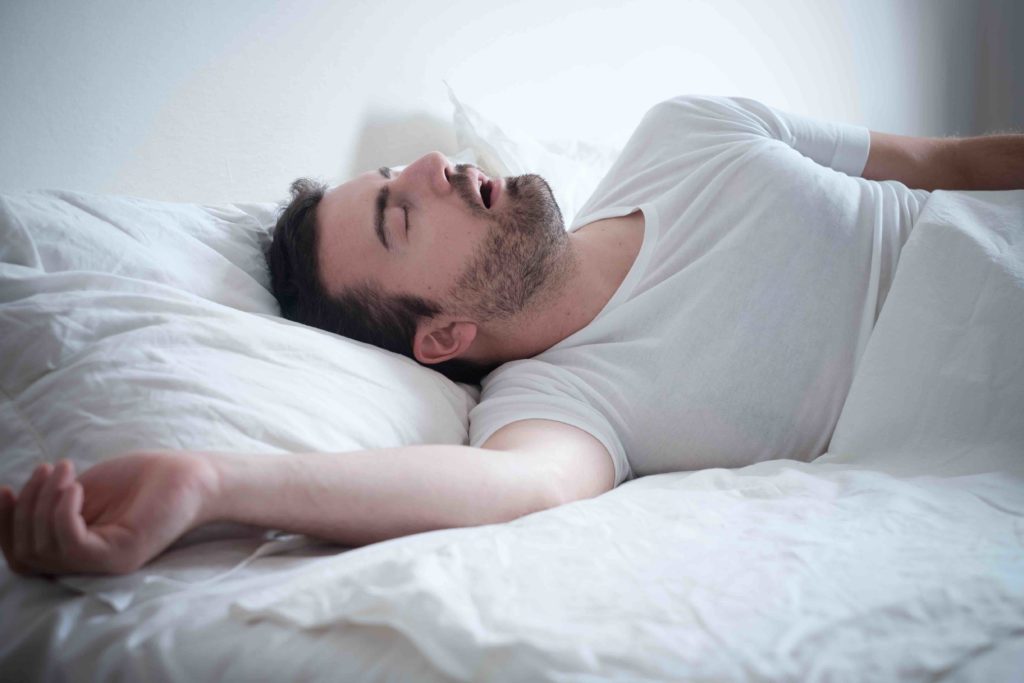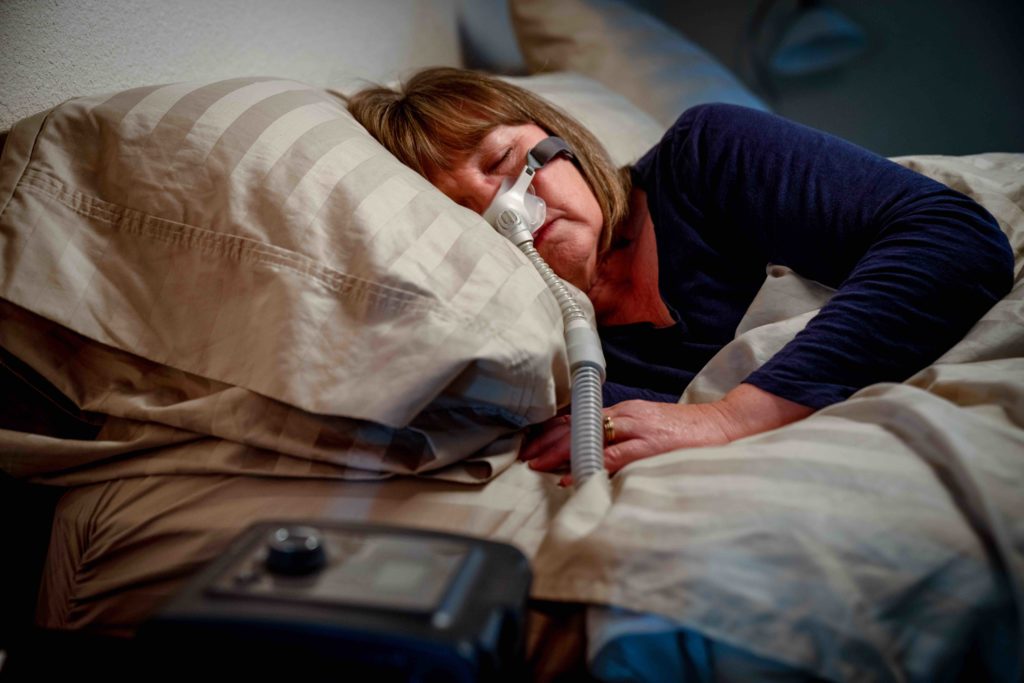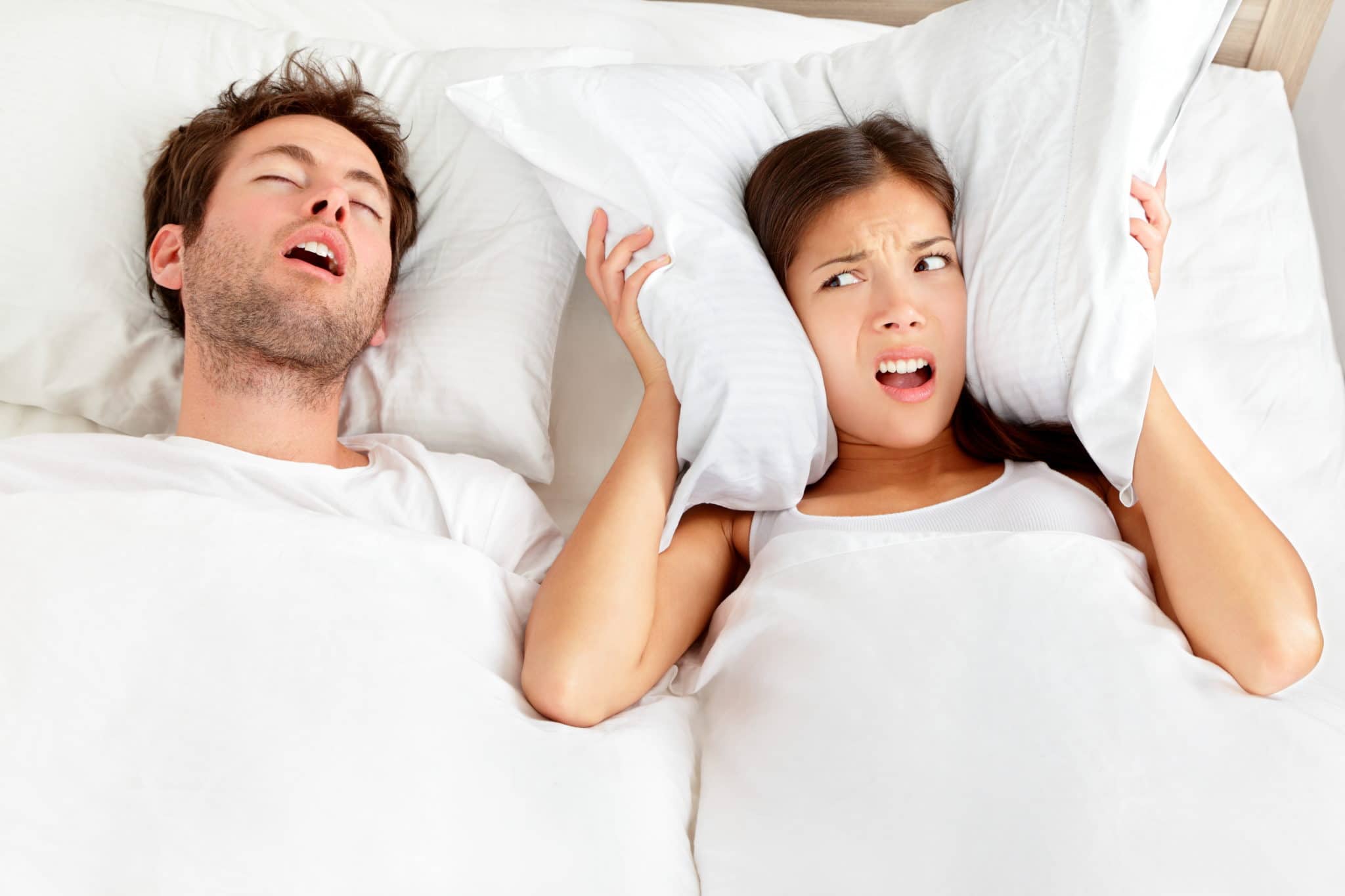Sleep Apnoea
Sleep apnoea and snoring
Sleep disordered breathing (sleep apnoea and snoring), is a common sleep condition. Approximately 50% of men and 20% of women in Australia snore, which has been known to have a profound impact on our lives and that of our partners and family.

In some cases, snoring can be a sign of something far more significant to our general health, Obstructive Sleep Apnoea. Sleep apnoea is an event during sleep where the tongue and soft palate collapse, causing an interruption to breathing and an episode of sleep disruption with an increase in heart rate and blood pressure. With this, the normal sleep cycle is interrupted, making us feel tired and un-refreshed when we wake in the morning or during the day. It also increases our risk of a multitude of general health conditions, including stroke, cardiovascular disease and diabetes.

This patient is wearing a CPAP machine for optimal sleep in the event of severe sleep apnoea.
Sleep apnoea signs and symptoms
Unfortunately, it is believed that 85% of sleep apnoea is undiagnosed.
At DR Dental and the SAJE group, we screen all patients no matter what your age or risk factors, to identify those of us who need further assessment. We believe that the dental hub should be treated as a screening centre for systemic health conditions.
Some common signs and symptoms that can indicate a sleep apnoea condition are:
- Snoring
- Excessive daytime fatigue (hypersomnia)
- Gasping for air during sleep
- Periods during sleep in which you stop breathing (this may be reported by another person)
- Difficulty staying asleep (insomnia)
- Noticing a dry mouth upon awakening
- Morning headache
- High blood pressure
- Irritability
What causes sleep apnoea?
The causes of sleep apnoea is thought to be resulting from a range of risk factors, including:
- High body mass index, which reduces volume of the airway
- Small size of the bottom and/or top jaw
- Male gender
- High blood pressure
- Diabetes
- Respiratory conditions
How do I know if I have sleep apnoea?
At your first appointment with us, we will use a simple questionnaire to identify your individual risk factors for Sleep Disordered Breathing. This comprehensive examination helps us to identify if there is an underlying condition. This allows us to establish your entire risk profile.
Moving forward, diagnosis is formed with assistance of a sleep study. We provide our patients with a take home sleep study kit whereby a number of vital measurements will be tracked during sleep to identify the number of sleep apnoea events and severity of your condition. This data assists us in making a diagnosis, and guides the most appropriate treatment option for you.
What is the treatment for sleep apnoea?
Thankfully, modern medicine gives us options to manage sleep disordered breathing. We will provide treatment options based on the severity of your condition.
For cases of mild sleep apnoea and simple snoring, treatment with a dental device worn during sleep to bring the lower jaw forward can be used to prevent collapse of the airway. Alternatively, additional conservative management can include an improvement in sleep hygiene and weight loss. In any case, a peaceful night’s sleep is achievable for your partner.
If your condition is deemed to be in the moderate-severe range, a referral to a sleep physician will be arranged to adequately manage your issues.


